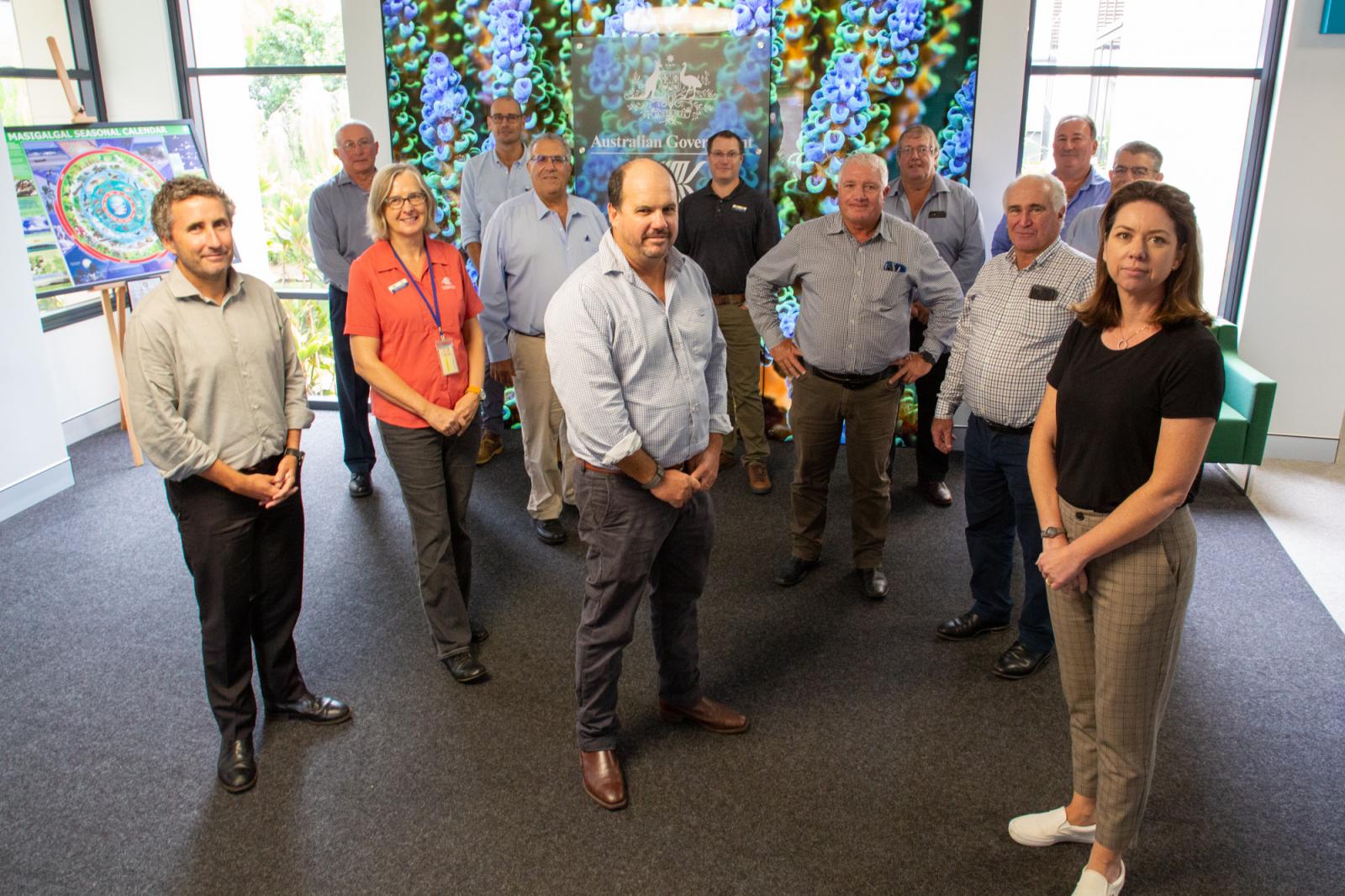CANEGROWERS Chairman, Paul Schembri
CANEGROWERS has always believed in our environmental credentials. Our modern farming systems, our technologies, our keenness for innovation and our adaptiveness ensure that we as sugarcane growers have an impressive story to tell, both to the community and the key decision makers.
In that light, the CANEGROWERS Board recently met in Townsville and for a large part, the meeting was all about engagement with two key environmental agencies - the Australian Institute of Marine Science (AIMS) and the Great Barrier Reef Marine Park Authority (GBRMPA).
AIMS is a world class facility just south of Townsville that plays a pivotal role in the research that informs government, industry and the wider community about the condition of Australia’s marine estate. It was, however, not just a case of CANEGROWERS going to look at fish tanks and coral.
Our overwhelming motivation was the chance to develop a conversation about AIMS’ understanding of the sugarcane industry. To explain where the industry not only sees itself, both in terms of our own sustainability and our input into the Reef health debate, but to show where we have come from and what changes we have made to get to our current state.
Exchanging information between parties lead to a more informed advocacy in Townsville, with a hint from AIMS of a joint project and the offering of further engagement to gain a greater understanding of our industry.
Whilst in Townsville, we also had some positive discussions with Dr David Wachenfeld, the Chief Scientist of GBRMPA. This organisation is the lead management agency for the Great Barrier Reef.
While we all accepted that some media reporting on the health of the Reef and the impact of land-based practices, specifically referencing sugarcane growing, is erroneous and misleading, we were buoyed up by the willingness of GBRMPA for further engagement.
Future opportunity to get to know each other and better understand how each organisation’s work inputs into the debate could assist with moving forward with realistic expectations. Just like that old saying ‘a problem shared is often a problem halved’.
Obviously, a few meetings with key environmental agencies does not in itself resolve many of our environmental difficulties but starting the conversation is definitely an important step.
By continuing to be out and about talking, listening and sharing CANEGROWERS’ story we are determined to bring about a more accurate understanding of where our cane growers rate in sustainable farming practices.
Because it is vital, that our growers are recognised for their resilience, ability to adapt and innovate, and importantly their willingness to embrace their role as environmental stewards.
The chance for face-to-face opportunities to tell our story with organisations such as AIMS and GBRMPA are also critical to ensuring that we as sugarcane growers are seen, heard and have our true environmental credentials recognised.

Members of the CANEGROWERS Board, Chairman, CEO and CFO with Dr Neal Cantin, an AIMS coral ecologist, Dr Britta Schaffelke, Research Program Director of AIMS’ Healthy and Resilient Great Barrier Reef program and Dr Richard Brinkman Research Program Director of AIMS’ Marine and Coastal Industries program

.jpg)